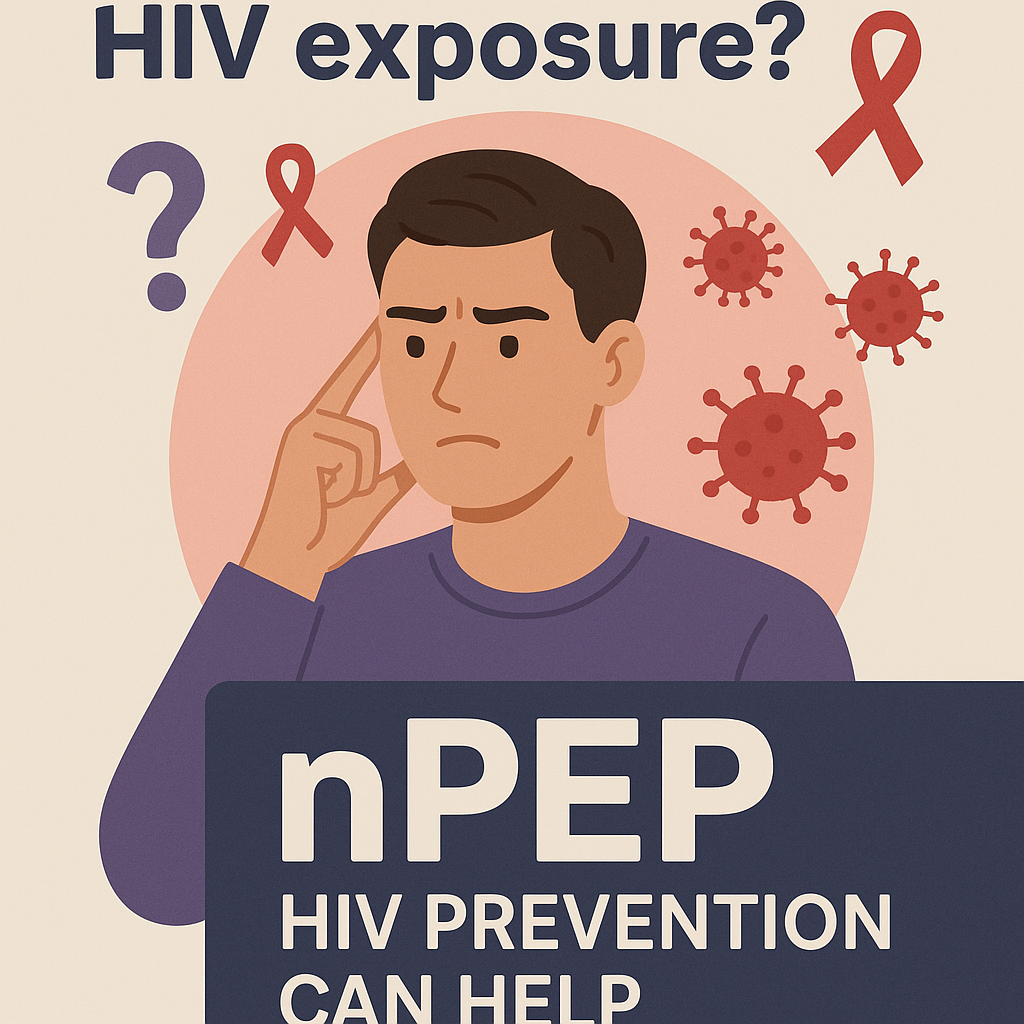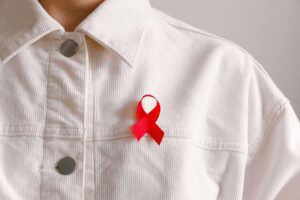
It's a dreadful feeling if you think you or a loved one might've been exposed to HIV recently. Your mind's probably racing with millions of questions and anxieties.

We're here to help answer your questions and put your mind at ease.
Firstly, know that there are steps you can take. One important HIV prevention option is nPEP. When started quickly, it can significantly reduce your risk of HIV infection after a potential exposure.
So, take a big, calming breath and let's learn more about nPEP and HIV prevention.
So, what exactly is nPEP? The term stands for non-occupational post-exposure prophylaxis.
Think of it as an emergency medication option.
It's a course of specific medicines you take soon after a potential HIV exposure to help prevent the virus from infecting your body. It's a critical part of HIV prevention after exposure in certain situations.
It's similar to what people living with HIV take to manage the virus, but in this case, it's used for a short period to stop the HIV infection.
When you start a nPEP prescription, you must take it every day for 28 days.
nPEP is designed for specific situations where there has been potential HIV exposure outside of a healthcare setting. It’s important to understand that nPEP and other HIV prevention options, like oPEP (occupational post-exposure prophylaxis), involve different treatment approaches.
It's also not used for ongoing HIV prevention. For that, there's PrEP, or pre-exposure prophylaxis.
We recommend nPEP if you've experienced situations like these in the last 72 hours, especially if you don't know their HIV status:
It's critical to act fast. The sooner you start nPEP after a possible exposure, the better it works. This method of HIV prevention after exposure is most effective when begun within 72 hours.
You might wonder how nPEP helps with HIV prevention.
When HIV enters the body, it takes some time to establish a permanent infection. The antiretroviral medicines used in nPEP work by stopping the virus from making copies of itself and spreading throughout your body.
Taking these medications as prescribed for the full 28 days gives your body the best chance to fight off the virus.
According to the Centers for Disease Control and Prevention's (CDC) nPEP guide, the medicine is effective but not 100%. This is why it's imperative to use it for the full duration.
We cannot stress enough: time is critical when it comes to nPEP HIV prevention.
As mentioned, nPEP must be started within 72 hours (3 days) of a possible HIV exposure.
The sooner it's started, the more effective it is. Waiting longer than 72 hours makes nPEP much less likely to work. Typically, healthcare providers will not prescribe it beyond this window.
If you think you've been exposed to HIV, seek medical advice immediately. A healthcare provider can assess your risk and help you decide if nPEP is right for you.
Quick action is a cornerstone of effective HIV prevention after exposure.
If you're in Southwest Florida and concerned about a recent potential HIV exposure, we at The McGregor Clinic can help.
We provide nPEP as part of our comprehensive medical services.
Our team understands the urgency and sensitivity of these situations. We will offer a confidential consultation to discuss your exposure, answer your questions about nPEP HIV prevention, and determine if nPEP is the appropriate step for you.
If you think nPEP might be right for you or have questions about nPEP HIV prevention, or other sexual health services, please reach out.
Contact McGregor Clinic today to speak with one of our healthcare professionals.
Your health is our priority.
Disclaimer: We're passionate about sharing helpful insights and information with our community. Please remember, this blog is for educational purposes and should not replace a conversation with your personal healthcare provider. Your health is unique, so you should always consult a medical professional for any specific concerns or treatment. If you have questions or wish to discuss your care, McGregor Clinic is here to help.
